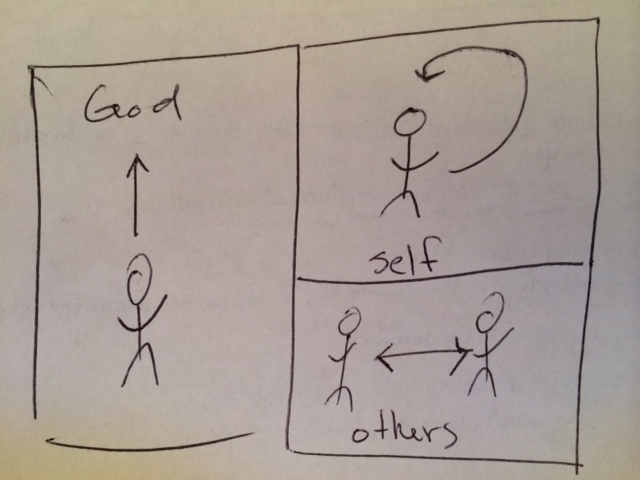Parenting is not only hard work, it’s heart work! And while we can’t be perfect parents, we can be effective parents.

In the next four days I’m going to share a few parenting SNAPSHOTS. These SNAPSHOTS are parenting principles my wife and I have been learning the last 10 years. They have helped us and many families we’ve served over the years. May they help and encourage you in your parenting.
These principles are taken mostly from the great work of Ted Tripp. His book Shepherding a Child’s Heart is at the TOP of my recommending reading for parents.
Let’s look at snapshot #1, “The heart of the matter is the matter of the heart.”
Here are four things to consider in regard to your parenting philosophy:
1. Behavior comes from the HEART!
Proverbs 4:23 is a key passage to grasp and build upon:
Above all else, guard your heart, for it is the wellspring of life. (NIV)
It’s so easy just to focus on behavior. We want “good” kids, right?! We want them to be “on their best behavior.” But how they act flows from what’s in their heart. Just like their parents! Kids (and adults) fight because there is something we want and don’t have (James 4:1-3)!
What your children say and do comes from the heart. True of us too!
Great news! God is the heart-knower! He knows what the heart is really like. And it’s not always pretty, is it!
God knows “Folly is bound up in the heart of a child.” (Prov 22:15). Folly is unwise behavior that ignores or denies God.
2. Jesus Focuses on the Heart
Here are a few examples:
Matthew 6:21 “Where your treasure is that is where your heart is.”
Matthew 5:8 “Blessed are the pure in heart,for they will see God”
Mark 12:30 “Love the Lord your God with all your heart and with all your soul and with all your mind and with all your strength.”
Luke 6:45 “A good man brings good things out of the good stored up in his heart, and an evil man brings evil things out of the evil stored up in his heart. For the mouth speaks what the heart is full of.”
Focusing just on the behavior of our kids is like hanging good apples on bad trees. A bad tree only produces bad apples.
3. Children Will Work with Whatever Parents Give Them
What you train them with is what they will become. Manipulation will lead to manipulation. Threats will lead to threats. Emotional appeal will lead to emotional appeal. The major problem is that none of these strategies point to Jesus!
4. The Gospel Must be the Center Point of Discussion Regarding Change. To Do this You Must Take Your Kids to Jesus!
Your goal is to help your kids understand their need for that new heart that can only come from Jesus. Sin in the real problem. Jesus is the real solution!
You can’t be a perfect parent, but you can be a praying parent (Mark Batterson says that in Praying Circles Around Your Children). Pray daily for your child’s heart to be soft and open to Jesus.
When you’re correcting or disciplining, bring the gospel to the center. Urge your kids to pray and ask Jesus to change them. And then pray that for and with them.
Don’t expect quick fixes or fast change. We’re tilling ground, sowing seeds, and watering soil. It’s the Holy Spirit who will bring about real heart change, usually over time.
Above all else, guard your heart, for it is the wellspring of life.
~Proverbs 4:23
Stay tuned for tomorrow’ s post, Critiquing Your Goals: Parenting Snapshot #2.
QUESTION: What do you do that helps get to your child’s heart?










